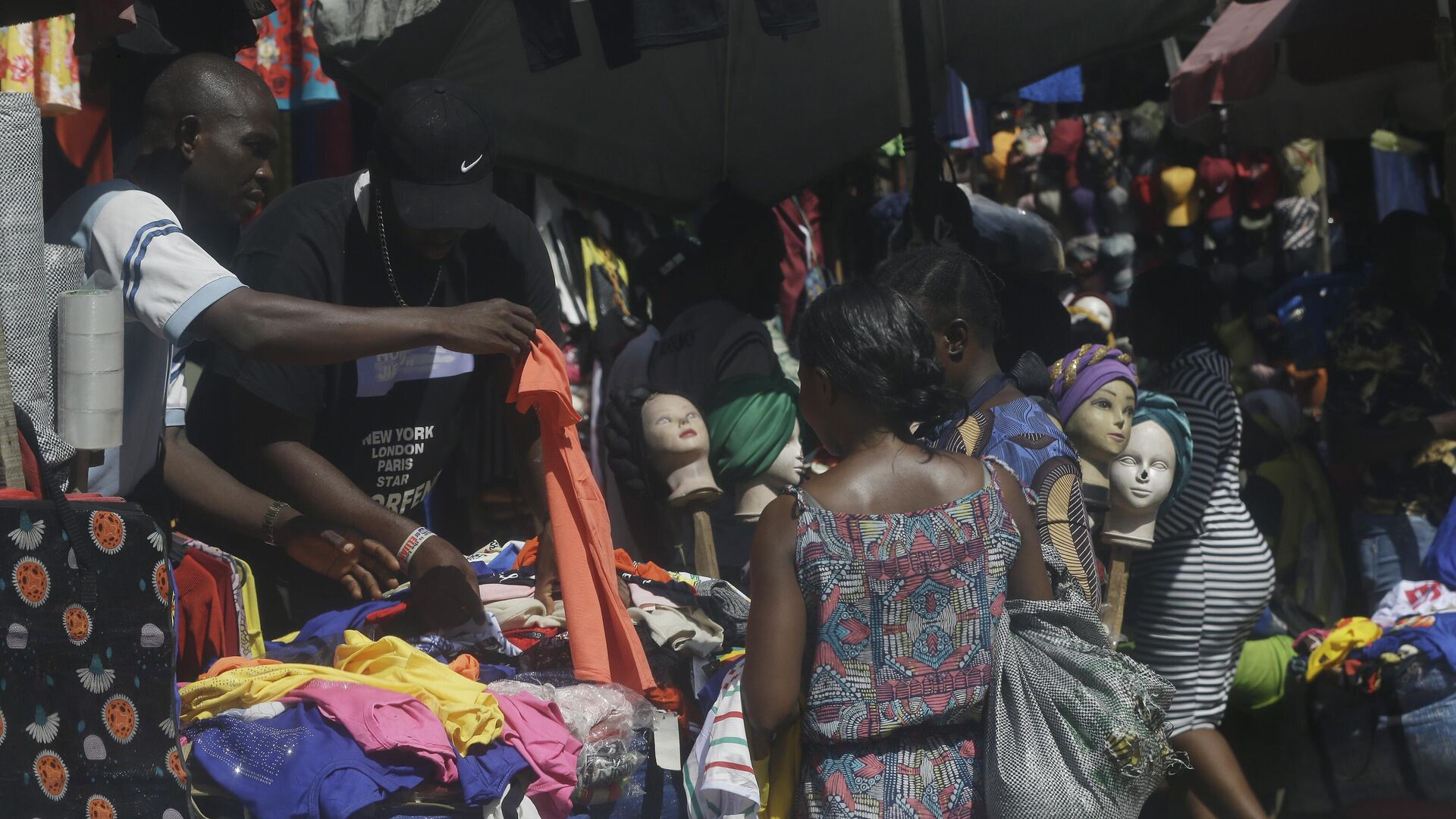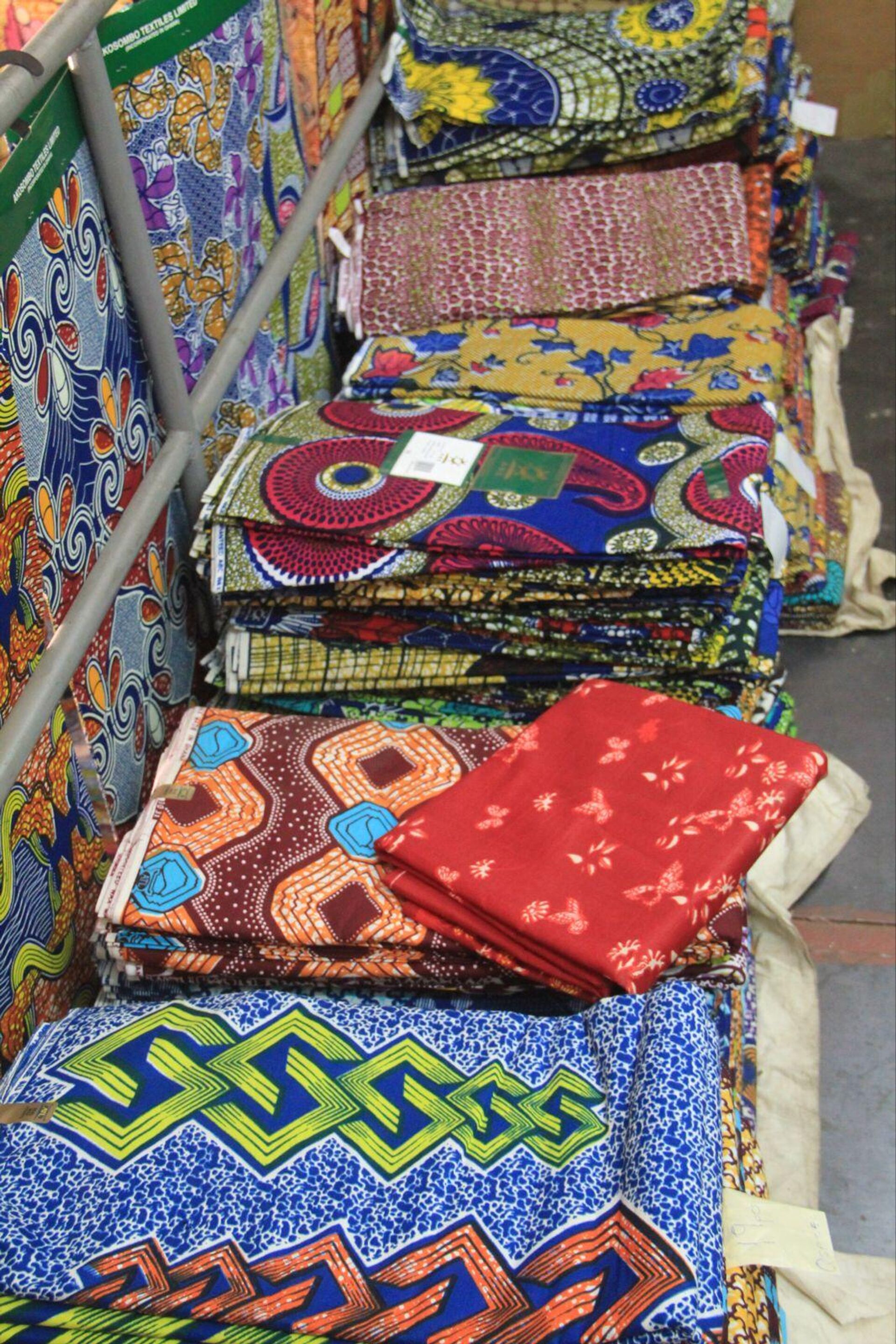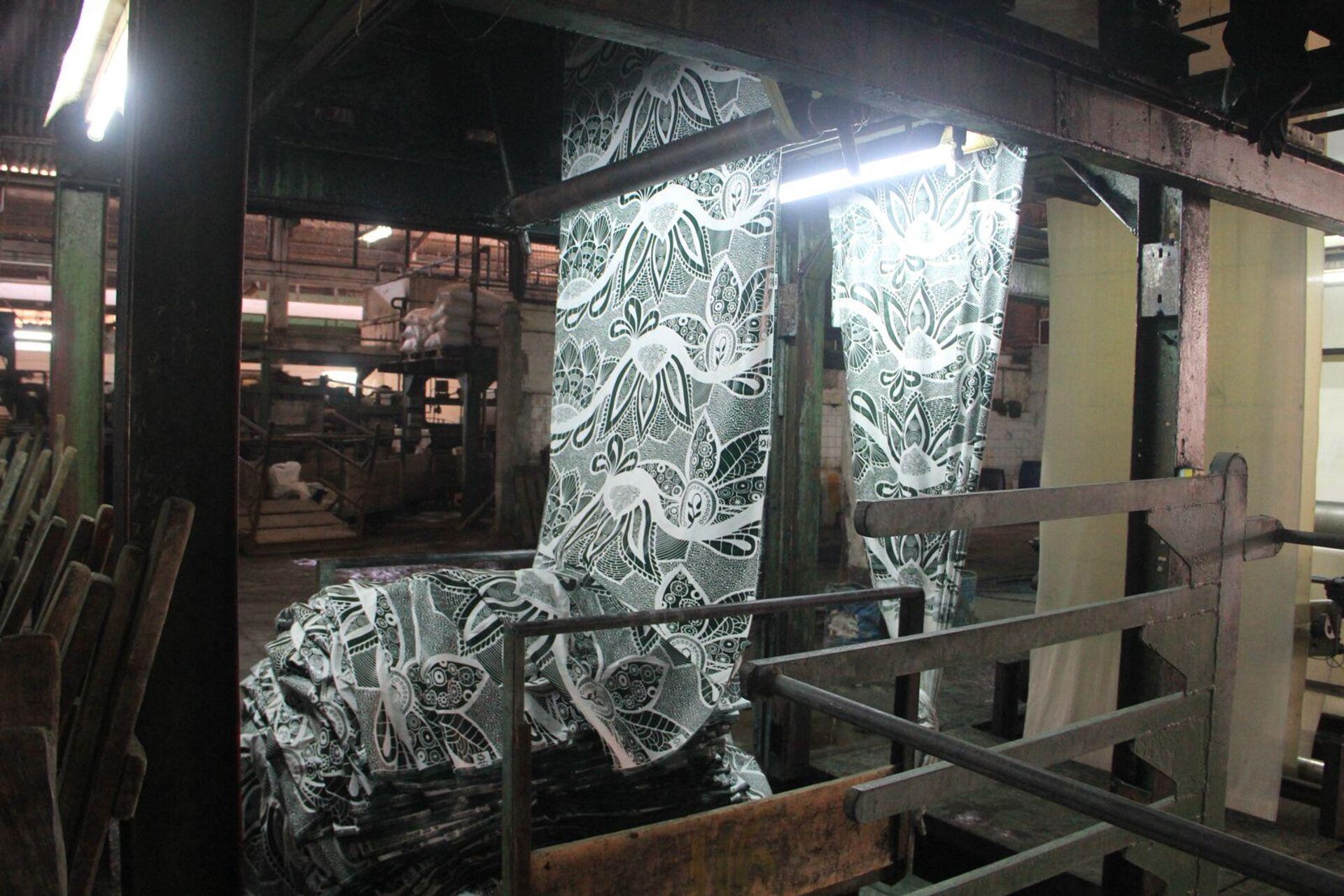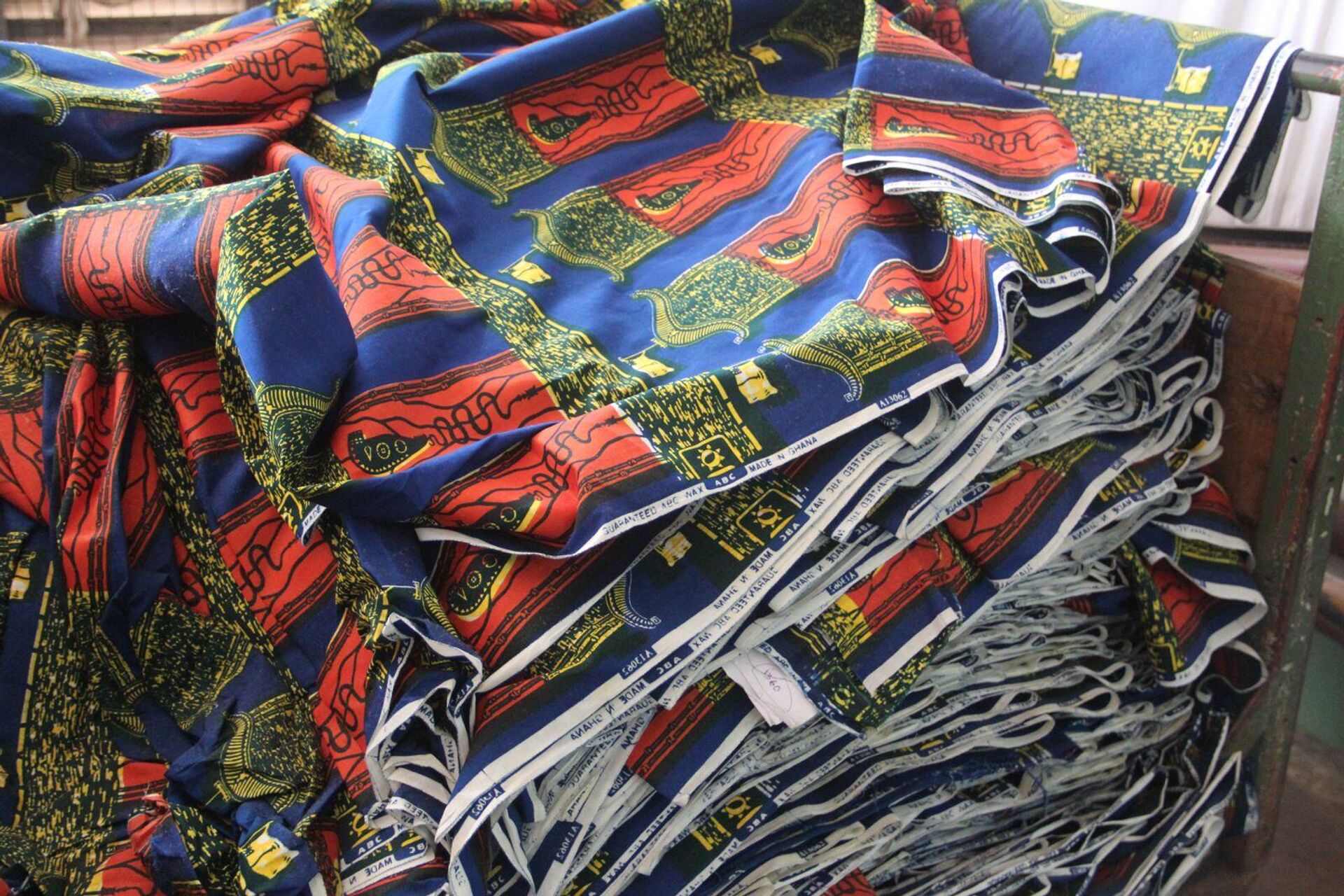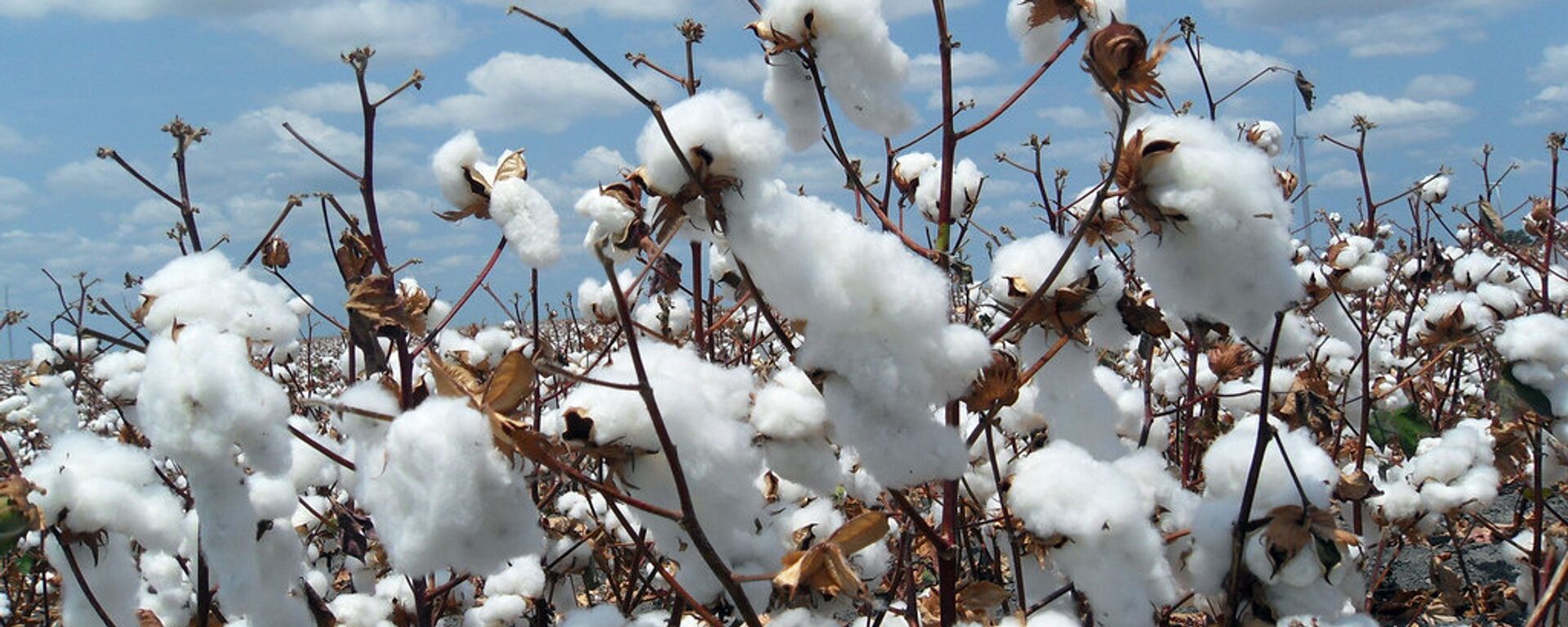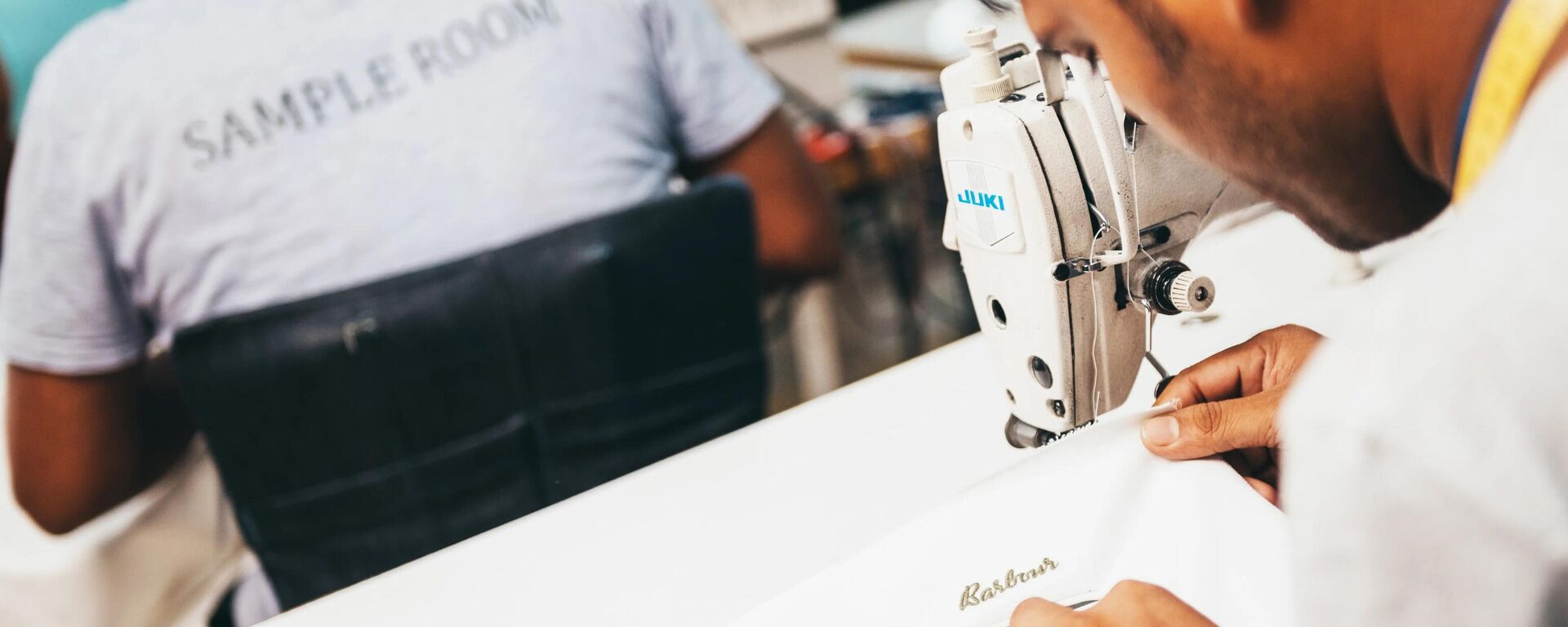https://en.sputniknews.africa/20250121/africa-drowning-in-wests-fashion-dump-local-textile-industries-struggle-to-stay-afloat-1070238729.html
Africa Drowning in West's 'Fashion Dump': Local Textile Industries Struggle to Stay Afloat
Africa Drowning in West's 'Fashion Dump': Local Textile Industries Struggle to Stay Afloat
Sputnik Africa
The vibrant and diverse textile traditions of Africa are being suffocated under a mountain of discarded clothing from the West, transforming the continent into... 21.01.2025, Sputnik Africa
2025-01-21T10:54+0100
2025-01-21T10:54+0100
2025-01-21T15:04+0100
opinion
africa
ghana
nigeria
sputnik africa
kenya
west africa
east africa
industry
fashion
https://cdn1.img.sputniknews.africa/img/07e7/06/05/1059723059_0:222:3072:1950_1920x0_80_0_0_92afcc1bb4e852f8f2c02666430c7fbd.jpg
From Ghana to Kenya and Nigeria, the influx of cheap, second-hand clothes is not only stifling economic growth and job creation but also posing significant environmental and cultural challenges. Sputnik Africa spoke with experts across the region to unravel the complexities of this issue and explore potential solutions.Tamakloe pointed to the devastating loss of approximately 25,000 jobs in the textile sector alone, highlighting the economic consequences of this trade. He argued that this influx is a deliberate tactic, a "weapon against the growth of Ghanaian fashion," used to destabilize African economies.Walking the streets of Ghana, he observes, one sees that "more than 80% of Ghanaians are wearing secondhand clothing." According to Tamakloe, this not only undercuts local businesses but also erodes cultural identity, with people often seen wearing clothing bearing foreign symbols and imagery.He further emphasized the environmental damage caused by this influx, with discarded clothing polluting rivers and harming marine life.Chidera Muoka, former Editor-in-Chief of Marie Claire Nigeria, reinforced Tamakloe's concerns, highlighting the disruptive impact of the unchecked influx of cheap second-hand clothing from Europe and the US on local textile industries. She emphasized that this flood of imports is not accidental, but rather a deliberate and conscious decision by Western nations to offload their excess clothing onto African markets, creating an unfair playing field.Kobenan Kouame Djabaho, former Brand A&P Manager for Da Viva and with experience at African Textile Ltd., offered a granular perspective on the struggles faced by textile manufacturers. He pointed to factory closures and widespread job losses across Ghana and Nigeria as direct consequences of the inability to compete with the low prices of second-hand clothing.Djabaho cited specific examples like the near closure of United Nigeria Textiles (UNTL) in Nigeria and the struggles faced by factories in Nigeria's Kaduna and Ghana.Without intervention, Djabaho warned, "the textile industry in Africa is going to decline."He also envisioned a future where African textile traditions are celebrated and revitalized, drawing on the rich history and diverse craftsmanship found across the continent, such as the 60 unique textile traditions in Côte d'Ivoire.While some may argue that second-hand clothing provides affordable options for consumers, the long-term consequences for African economies, cultures, and environments are undeniable. The testimonies of these experts reveal a system that perpetuates exploitation and hinders the growth of local industries.Addressing this complex issue requires a multifaceted approach, including policy changes, increased awareness among consumers, and greater support for African designers and manufacturers, according to the experts. Only then can Africa reclaim its textile heritage and build a sustainable and thriving fashion industry.
https://en.sputniknews.africa/20241008/cotton-is-job-creation-tool--means-of-ensuring-food-security-in-africa-industry-official-says-1068601624.html
https://en.sputniknews.africa/20240109/western-brands-to-pay-off-garment-workers-in-mauritius-after-report-finds-evidence-of-forced-labor-1064533758.html
https://en.sputniknews.africa/20230825/president-museveni-bans-import-of-used-clothes-urges-ugandans-to-support-local-industry-1061631798.html
africa
ghana
nigeria
kenya
west africa
east africa
west
europe
united states (us)
Sputnik Africa
feedback@sputniknews.com
+74956456601
MIA „Rossiya Segodnya“
2025
Muhammad Nooh Osman
https://cdn1.img.sputniknews.africa/img/07e7/04/0a/1058467512_0:0:1280:1280_100x100_80_0_0_ec723833bcbfcaed2e21952965ad99e4.jpg
Muhammad Nooh Osman
https://cdn1.img.sputniknews.africa/img/07e7/04/0a/1058467512_0:0:1280:1280_100x100_80_0_0_ec723833bcbfcaed2e21952965ad99e4.jpg
News
en_EN
Sputnik Africa
feedback@sputniknews.com
+74956456601
MIA „Rossiya Segodnya“
Sputnik Africa
feedback@sputniknews.com
+74956456601
MIA „Rossiya Segodnya“
Muhammad Nooh Osman
https://cdn1.img.sputniknews.africa/img/07e7/04/0a/1058467512_0:0:1280:1280_100x100_80_0_0_ec723833bcbfcaed2e21952965ad99e4.jpg
africa, ghana, nigeria, sputnik africa, kenya, west africa, east africa, industry, fashion, economy, west, europe, united states (us), africa insight
africa, ghana, nigeria, sputnik africa, kenya, west africa, east africa, industry, fashion, economy, west, europe, united states (us), africa insight
Africa Drowning in West's 'Fashion Dump': Local Textile Industries Struggle to Stay Afloat
10:54 21.01.2025 (Updated: 15:04 21.01.2025) Muhammad Nooh Osman
Writer/Editor
Longread
The vibrant and diverse textile traditions of Africa are being suffocated under a mountain of discarded clothing from the West, transforming the continent into a "fashion dumping ground" and crippling local industries, fashion experts argued in conversation with Sputnik Africa.
From Ghana to Kenya and Nigeria, the influx of cheap, second-hand clothes is not only stifling economic growth and job creation but also posing significant environmental and cultural challenges. Sputnik Africa spoke with experts across the region to unravel the complexities of this issue and explore potential solutions.
"Second-hand clothing [hasn't just] impacted our clothing and textile industry; it's destroyed [it]," Nana Addo Tamakloe, founder and CEO of Accra Fashion Week and owner of Fashionghana.com, told Sputnik Africa, painting a stark picture of the situation in Ghana.
Tamakloe pointed to the devastating loss of approximately 25,000 jobs in the textile sector alone, highlighting the economic consequences of this trade. He argued that this influx is a deliberate tactic, a "weapon against the growth of Ghanaian
fashion," used to destabilize African economies.
Walking the streets of Ghana, he observes, one sees that "more than 80% of Ghanaians are wearing secondhand clothing." According to Tamakloe, this not only undercuts local businesses but also erodes cultural identity, with people often seen wearing clothing bearing foreign symbols and imagery.
He further emphasized the environmental damage caused by this influx, with discarded clothing polluting rivers and harming marine life.
Chidera Muoka, former Editor-in-Chief of Marie Claire Nigeria, reinforced Tamakloe's concerns, highlighting the disruptive impact of the unchecked influx of cheap second-hand clothing from Europe and the US on local textile industries.
She emphasized that this flood of imports is not accidental, but rather a deliberate
and conscious decision by Western nations to offload their excess clothing onto African markets, creating an unfair playing field.
"This isn't a fair competition.
Our local weavers and artisans invest time, skill, and heritage into crafting textiles that are not just garments but cultural artifacts—rooted in sustainability and slow fashion," Muoka told
Sputnik Africa. She underscored the urgent need to champion and invest in these artisans, whose unique craftsmanship and high-quality output represent the true essence of African fashion and sustainability.
Kobenan Kouame Djabaho, former Brand A&P Manager for Da Viva and with experience at African Textile Ltd., offered a granular perspective on the struggles faced by textile manufacturers. He pointed to factory closures and widespread job losses across Ghana and Nigeria as direct consequences of the inability to compete with the low prices of second-hand clothing.
Djabaho cited specific examples like the near closure of United Nigeria Textiles (UNTL) in Nigeria and the struggles faced by factories in Nigeria's Kaduna and Ghana.
"I believe that the need to increase the taxes on imports for these second-hand because people go for it because it is affordable. So [the government] needs to make it a bit more expensive. So at least people will have other choices," he said.
Without intervention, Djabaho warned, "the textile industry in Africa is going to decline."
"I don't see any good future if we don't stop this second-hand clothing or if we don't reduce it," he added.
He also envisioned a future where African textile traditions are celebrated and revitalized, drawing on the rich history and diverse craftsmanship found across the continent, such as the 60 unique textile traditions in Côte d'Ivoire.
While some may argue that second-hand clothing provides affordable options for consumers, the long-term consequences for African economies, cultures, and environments are undeniable. The testimonies of these experts reveal a system that perpetuates exploitation and hinders the growth of local industries.
Addressing this complex issue requires a multifaceted approach, including policy changes, increased awareness among consumers, and greater support for African designers and manufacturers, according to the experts. Only then can Africa reclaim its textile heritage and build a sustainable and thriving fashion industry.
